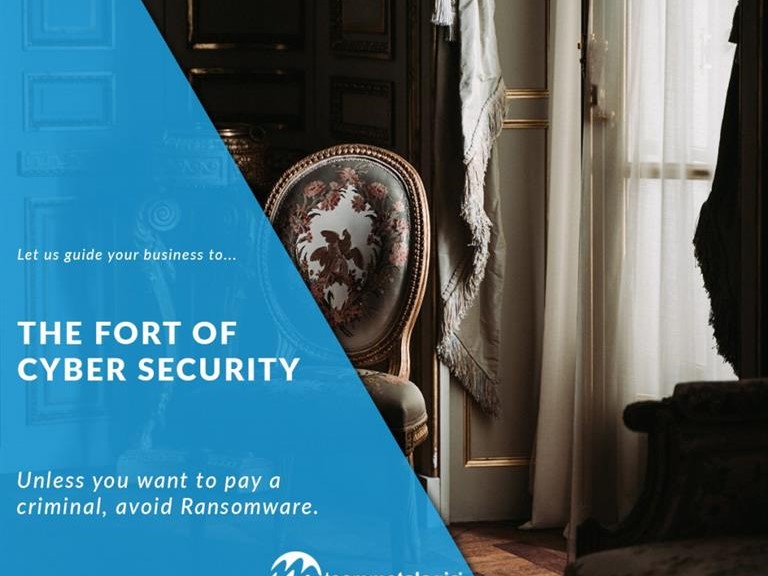Unless you want to pay a criminal, avoid Ransomware. Cybercriminals are all around us, your critical data is always at risk.
Along with Phishing, Ransomware is one of the most common threats we face, an unfortunate popular choice for cybercriminals all around the world. It’s a malicious piece of software that wriggles its way into your IT system, encrypting and locking files, data and the demands a ransom to restore your access.
A method that uses your own information against you, the files are still on your computer, however, they’re all encrypted and completely out of your control.
The hackers will give you a set period of time and threaten to wipe the system if you don’t pay the ransom, causing many businesses to pay the fine almost immediately upon request.
Don’t be fooled, they’re not as kind as you may think. 7 out of 10 times if you pay the ransom, they’ll likely restore your access. However, it doesn’t mean they always will, you’re then out of pocket, still without all your data.
Worst-case, if you pay up and they do return your files, they now know you’re able to afford high-rate one-off payments, so don’t be surprised if they lock you out of your data again, if you’re not smart enough to bring in a Cyber Security team.
What are the different types?
Ransomware, again similar to phishing comes in all different forms and masks, some types are much more harmful than others:
Crypto Malware – Most harmful form of ransomware, the ability to encrypt everything on your system, once it’s started, you’ll no longer have access to any of your files until you pay the ransom.
Screen Lockers – Infects your operating system to completely lock you out of your computer or device, making it impossible to access any of your files.
Scareware – As its name states, it’s used to scare you. Fake software claiming to be an antivirus and demands money for ‘finding issues with your computer’. Some types lock you out but others mostly flood your screen with pop-ups and persistent alerts.
Doxware – Otherwise known has leakware, hackers will gain access to and will threaten to leak all your private documents, pictures and information, most victims will pay once their files have been hijacked.
How do you avoid Ransomware attacks?
Ransomware is the most popular money-making tool for hackers and can be hard to stop. Prevention is the most important aspect of safeguarding your confidential data. To deter cyber-criminals and help defend yourself from a ransomware attack, keep these points in mind:
Use security software with Advanced Threat Protection; Install trusted security suites to protect your data, you need more than just anti-virus.
Update your Security software as well as your Operating System to the latest version at all times.
Never open email attachments or embedded links without proofing them first, you never know what it might be.
Be cautious of emails with attachments that require you to enable macros to view its content, once you enable macros, the malware inside is activated and will enter your system.
Use cloud services, they’re fantastic for mitigating ransomware infections.
Don’t pay the ransom, yes you have a time limit and they’re threatening you with your files, but a cyber-criminal can ask you to pay over and over again and still never release your files, they locked you out, they won’t be kind and let you back in. If you’ve backed it up, let it go and restore it all for free.
For more info get your FREE pinpoint guide on Ransomware
We’re Team Metalogic
We’re Team Metalogic, a managed IT services provider offering outsourced IT solutions to SME’s across the UK. With a proven track record, with extensive experience and a full portfolio of industry accreditations & certifications.
Our stress-free solutions don’t complicate things, in fact, they improve efficiency and save money.

